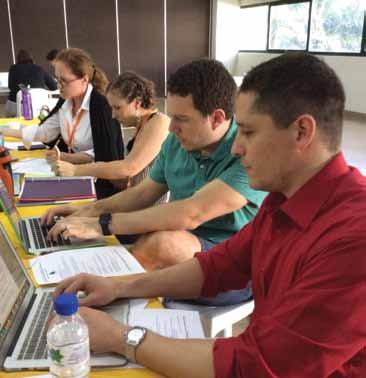
2 minute read
Leadership Program
Leadership Program >> Supporting Tomorrow’s East Asia International School Leaders: Context-Based Training and the Development of Support Networks
Students Prepare A Group Report
We arrived in Bangkok in the spring of 2012 to teach our first group of principal candidates. We were pleased to join the International Leadership Program co-sponsored by the University of San Francisco and Washington State University.
As retired school superintendents from the United States, we knew that educational leadership is increasingly challenging and complex. We quickly learned that this is especially true in East Asia, where many administrators work in relative isolation from each other. While school leaders in the United States struggle to increase learning for all students, administrators in East Asian schools face the same challenge but must also contend with the additional challenge of working in “for profit” educational organizations.
Structured Group Work Results in Enduring Professional Networks We knew from experience that the transition from teacher to a formal leadership role is challenging. Teachers who have acquired a sense of efficacy and competence borne from years of successful
practice can find themselves uncertain and tentative as they move into positions of leadership—especially in cases where they do not have a mentor to guide them. Despite participation in effective training programs and authentic internship opportunities the newly anointed administrators in our program spoke of missing their teacher colleagues with whom they had formed close relationships.
We quickly recognized the need to structure our weeklong seminars to create learning communities and support networks that would endure between seminars and after students’ graduation from the program. We began by structuring seminars around group and teamwork, and later added coaching and role-playing components. As candidates developed work products, e.g., model teacher evaluations, we provided opportunities for collegial feedback to inform their work. They co-developed documents and materials such as communication and crisis plans, protocols for dealing with challenging interpersonal confrontations, and other work products they could apply in their professional setting.
As networks began to form organically, we were delighted to find that students sought out each other at social events, and scheduled evening meals so they could continue their conversations. As months and years have passed, we have noted that colleagues follow each other’s career paths, often connecting at EARCOS conferences or at other professional venues. They continued to seek assistance and advice from each other regarding personnel issues, policy and procedure development, and other needs.











